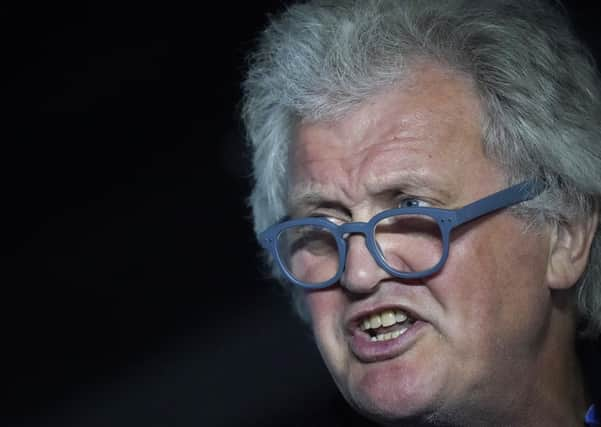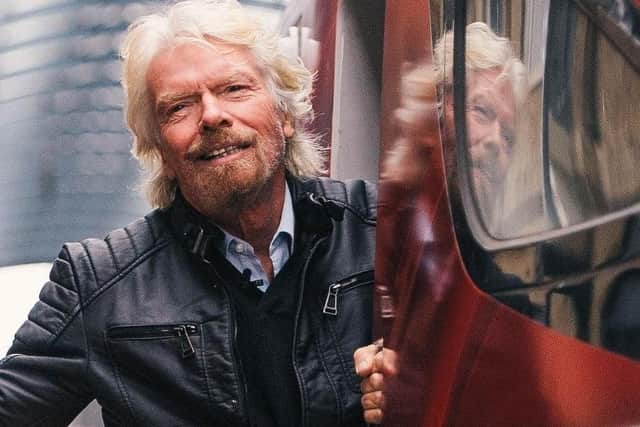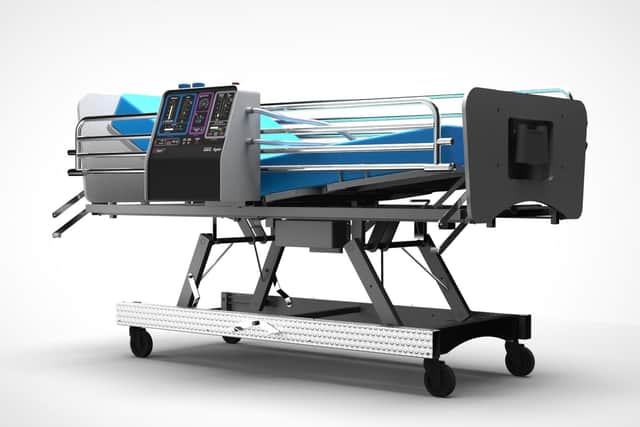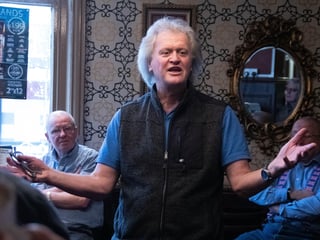These coronavirus corporate villains won’t get my support – Andrew Vine


I’ll be far from alone in taking a dim view of those who attempted to make a profit out of a nation sick not only with coronavirus, but with worry too.
In the phone conversations, Skype calls and email exchanges that are currently substitutes for getting together, most people I know feel the same – that there have been villains as well as heroes in all this, and they’re due a reckoning.


Advertisement
Hide AdAdvertisement
Hide AdWhen I meet friends for a drink once the pubs are open again, it won’t be in a J D Wetherspoon house. And if any of us need walking or sports kit when we’re free to wander the hills or work up a sweat on a tennis court or football pitch, it won’t be bought from Sports Direct.
They are our choices as consumers, and it’s my hunch that shareholders are going to make similar decisions, which will have a much bigger impact and be aimed at the individuals who run these companies.
Individuals such as the J D Wetherspoon chairman Tim Martin, whose tin-eared response to an unfolding crisis was to try to keep his pubs open when compulsory closure loomed, and then said he wouldn’t be paying his staff until Government support for their wages arrived – a decision he later reversed.
Or Mike Ashley, the boss of Sports Direct, who tried to keep his stores open, and last week issued a grovelling apology for doing so. Nevertheless, his company raised prices of fitness equipment being bought online by shoppers wanting to stay in shape whilst locked down at home.


Advertisement
Hide AdAdvertisement
Hide AdSorry gents, but backtracking and apologising when it sinks in that you’ve been caught out attempting to put profit before the welfare of both the nation and your staff doesn’t work.
This country’s people aren’t daft. They see straight through you. It’s the horrible dawning realisation that you’ve probably kicked a dirty great hole in your next set of results because the public are appalled by the attitudes shown that lies behind this sort of apology.
It isn’t only these two companies who haven’t behaved well. Staff at Virgin Atlantic were ordered to take eight weeks of unpaid leave when the skies started to empty. Doubtless many will be wondering how to make ends meet as a result. That presumably isn’t a problem for their boss, Sir Richard Branson, mega-rich resident of Necker Island, in the Caribbean, physically and metaphorically a world away from overcrowded NHS wards and permanently-engaged Universal Credit helplines.
And celebrity chef Rick Stein, all smiles and affability on his television shows, got into a nasty PR blunder when it emerged his company wouldn’t be paying staff wages between April’s payday and the arrival of Government support. His next cookbook won’t be on my Christmas shopping list for the enthusiastic foodie I buy for.


Advertisement
Hide AdAdvertisement
Hide AdThere will be others, from hard-faced corporates to greedy individuals trying to flog hand-sanitising gel at inflated prices on eBay, and they’re in for a rude awakening. People won’t forget how they behaved, because this is a crisis like no other we’ve seen, and its memories will be especially vivid for years to come.
Nobody will forget being ordered to stay at home, the face-masks and the social distancing, the queuing and the shortages, above all the remorselessly rising daily tally of the dead and ill.
And because all that is already burned into Britain’s collective consciousness, the memory of the people and companies who didn’t do their bit to help are bound up with it.
Bad behaviour by businesses comes and goes all the time, and after a while the recollection of it usually fades. This time, though, it’s going to linger.
Advertisement
Hide AdAdvertisement
Hide AdBut so will better memories, of companies and individuals who did all they could to help, and they will deservedly reap the benefit from both a grateful public and shareholders.
Like the supermarkets, which have made massive efforts to maintain the food supply and stood by both staff and society – Asda promising full pay for carers of the vulnerable, Morrisons upping production to supply food banks and Tesco giving workers a 10 per cent bonus.
Or the manufacturers who answered the Government’s call to switch production to making ventilators, such as vacuum cleaner magnate Sir James Dyson, turning out 10,000 of them.
Or Sir Jim Ratcliffe, boss of chemicals company Ineos, setting up two plants to produce vast quantities of hand sanitiser for the NHS, free of charge.
Advertisement
Hide AdAdvertisement
Hide AdThese are humane and decent actions, in tune with the spirit of the nation in pulling together to get through this emergency. Those who failed to embrace that, and tried instead to turn a crisis into a money-making opportunity, will find little inclination on the part of Britain’s people to forget – let alone forgive.
